THE HAPPY PRINCE
DECEMBER 24, 2015
When I was little, my favorite story was Oscar Wilde's fable of The Happy Prince. My grandmother used to read it to me so often that I was finally able to read it to her. So I was pleased last April when Cristina Taverna of the Nuages Gallery in Milan asked me to do a dozen paintings for the story for her Classics Illustrated book series. The only catch was that the art had to be ready for exhibition in London on June 6. That meant the work had to be done in a month. The edition was published in May in both English and Italian.
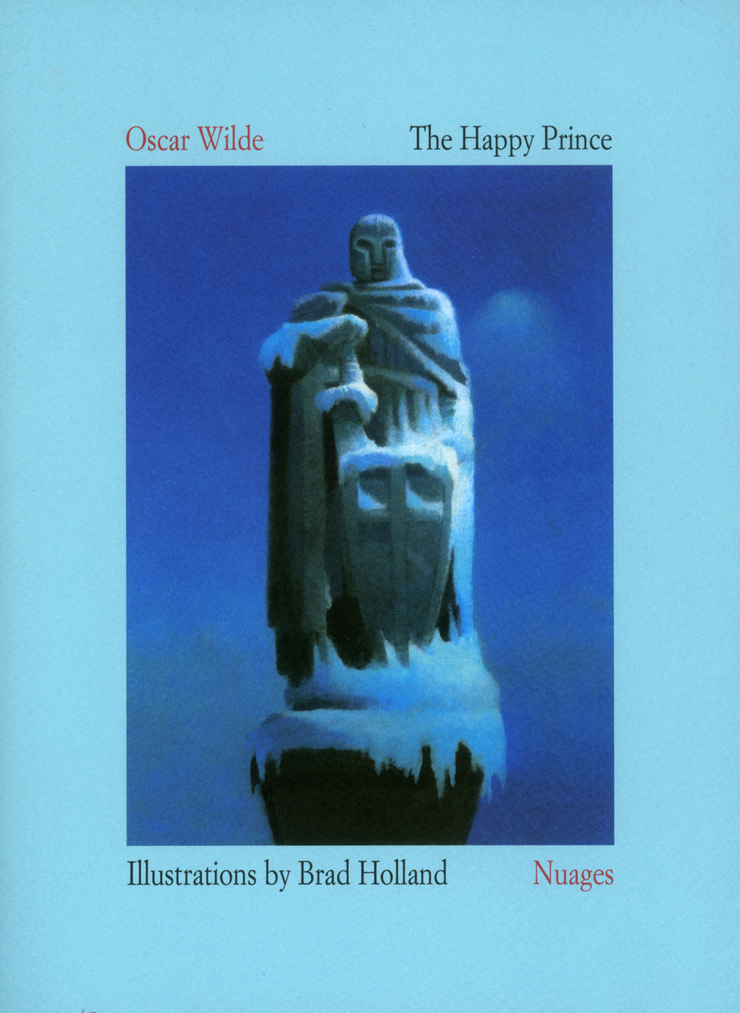
For those who don't know the story, it's about a town where poverty and unhappiness are common, but where the local big shots have erected a gilded statue of a Happy Prince to overlook the town.
From his perch, the statue sees the suffering below and, unable to tolerate his own splendor in the face of so much unhappiness, prevails upon a lovesick swallow to pluck out the ruby from his sword and later, the sapphires from his eyes to give to the poor.
At first, the swallow protests that he's late in joining the other birds on their winter migration to Egypt. But the statue persists and the swallow finally agrees to do his biding.
With his jeweled eyes gone the statue is blind. So the swallow stays with him to act as his eyes throughout the autumn.
Now it's the swallow who surveys the town's poverty and reports what he sees to the Happy Prince. And so, with no more jewels left, the statue commands the bird to strip him of his gold leaf and distribute it to the poor as well.
Winter comes, and with the statue blind, the bird stays with him as a companion. But with an unusually hard frost, the swallow dies and the statue's leaden heart breaks.
The town fathers tear down the statue and melt it down. But in the furnace, the dead bird doesn't burn and the statue's heart doesn't melt.
Then one day God sends an angel to the city to bring Him the most precious things he can find. The angel returns with the dead bird and the broken heart.
Here are the pictures, with captions from the text.
From his perch, the statue sees the suffering below and, unable to tolerate his own splendor in the face of so much unhappiness, prevails upon a lovesick swallow to pluck out the ruby from his sword and later, the sapphires from his eyes to give to the poor.
At first, the swallow protests that he's late in joining the other birds on their winter migration to Egypt. But the statue persists and the swallow finally agrees to do his biding.
With his jeweled eyes gone the statue is blind. So the swallow stays with him to act as his eyes throughout the autumn.
Now it's the swallow who surveys the town's poverty and reports what he sees to the Happy Prince. And so, with no more jewels left, the statue commands the bird to strip him of his gold leaf and distribute it to the poor as well.
Winter comes, and with the statue blind, the bird stays with him as a companion. But with an unusually hard frost, the swallow dies and the statue's leaden heart breaks.
The town fathers tear down the statue and melt it down. But in the furnace, the dead bird doesn't burn and the statue's heart doesn't melt.
Then one day God sends an angel to the city to bring Him the most precious things he can find. The angel returns with the dead bird and the broken heart.
Here are the pictures, with captions from the text.
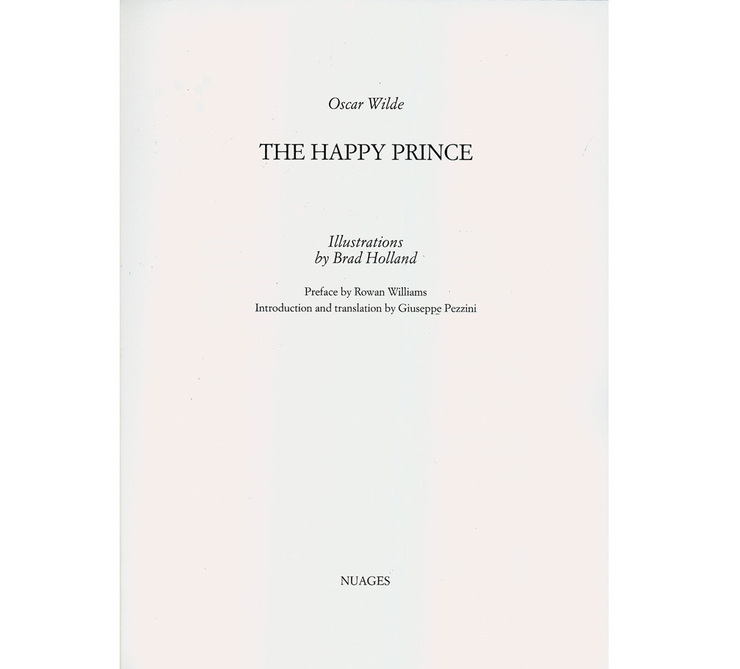
HIGH above the city, on a tall column, stood the statue of the Happy Prince. He was gilded all over with thin leaves of fine gold, for eyes he had two bright sapphires, and a large red ruby glowed on his sword-hilt.
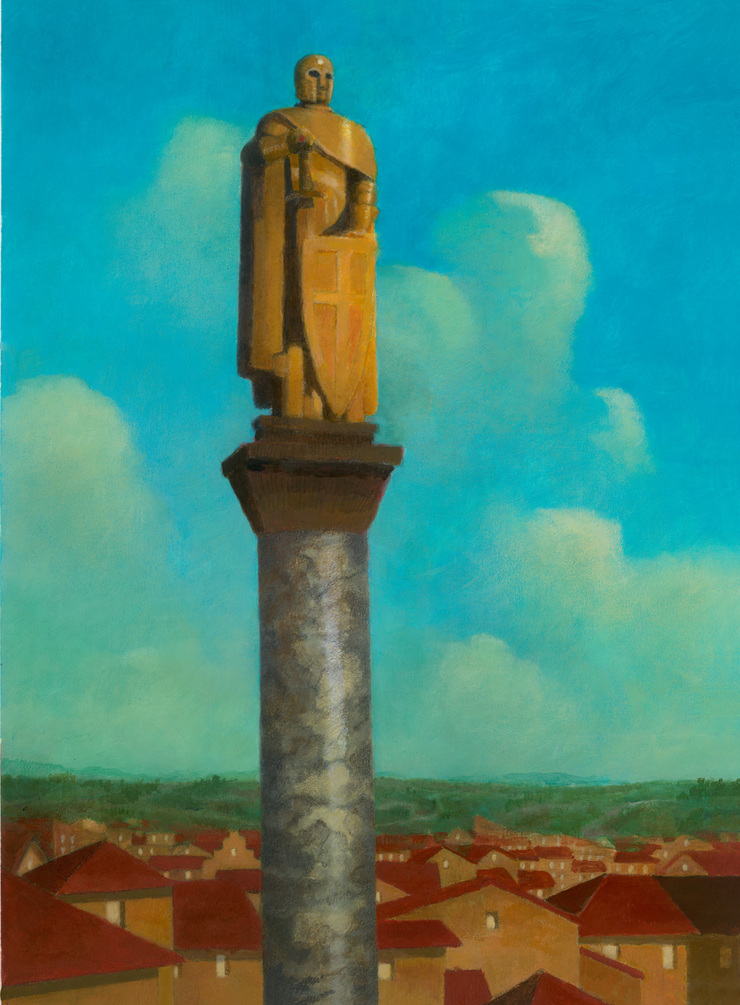
Then the swallow saw the statue on the tall column. ‘I will put up there,’ he cried; ‘it is a fine position with plenty of fresh air.’ So he alighted just between the feet of the Happy Prince.‘ I have a golden bedroom,’ he said softly to himself as he looked round, and he prepared to go to sleep.
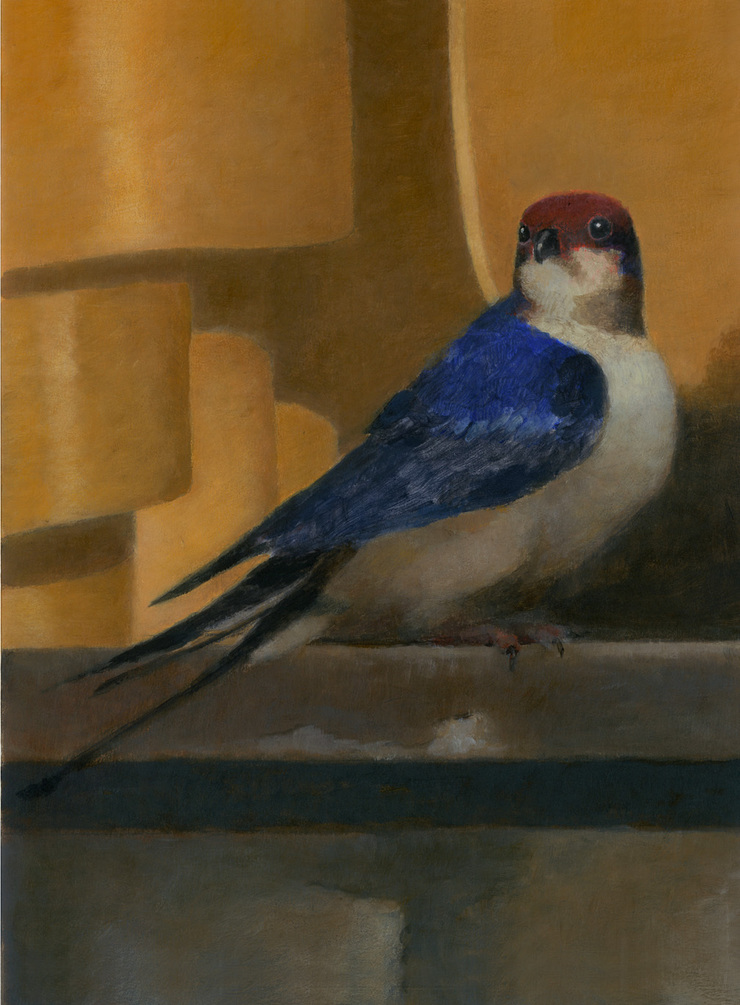
The eyes of the Happy Prince were filled with tears, and tears were running down his golden cheeks.
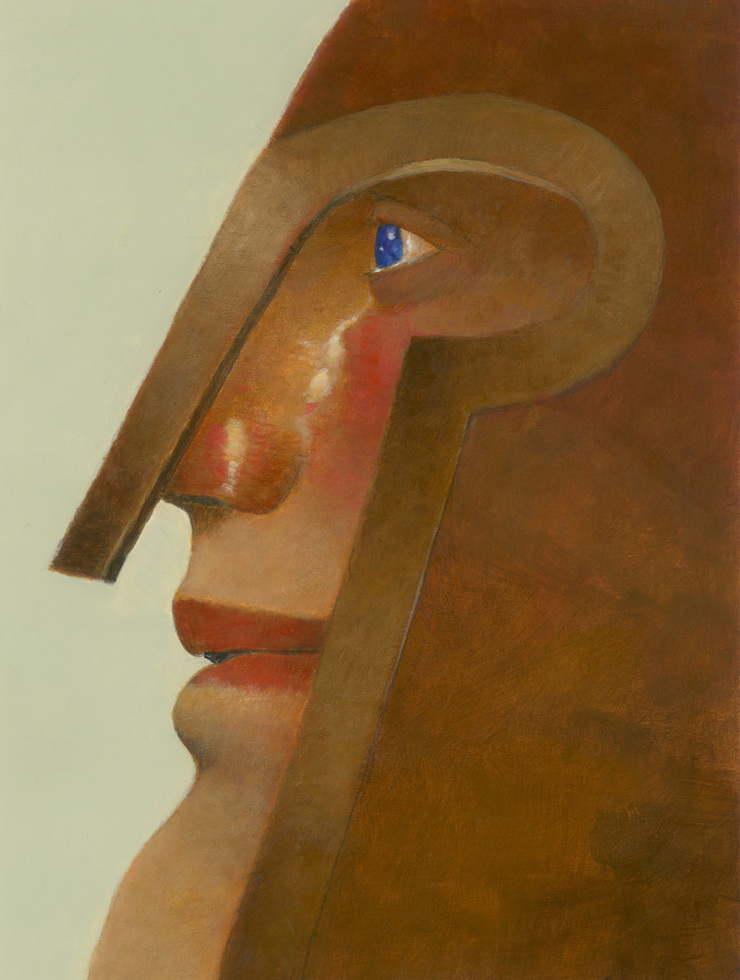
So the Swallow picked out the great ruby from the Prince’s sword, and flew away with it in his beak over the roofs of the town. He passed by the cathedral tower, where the white marble angels were sculptured. He passed by the palace and heard the sound of dancing…At last he came to the poor house and looked in.
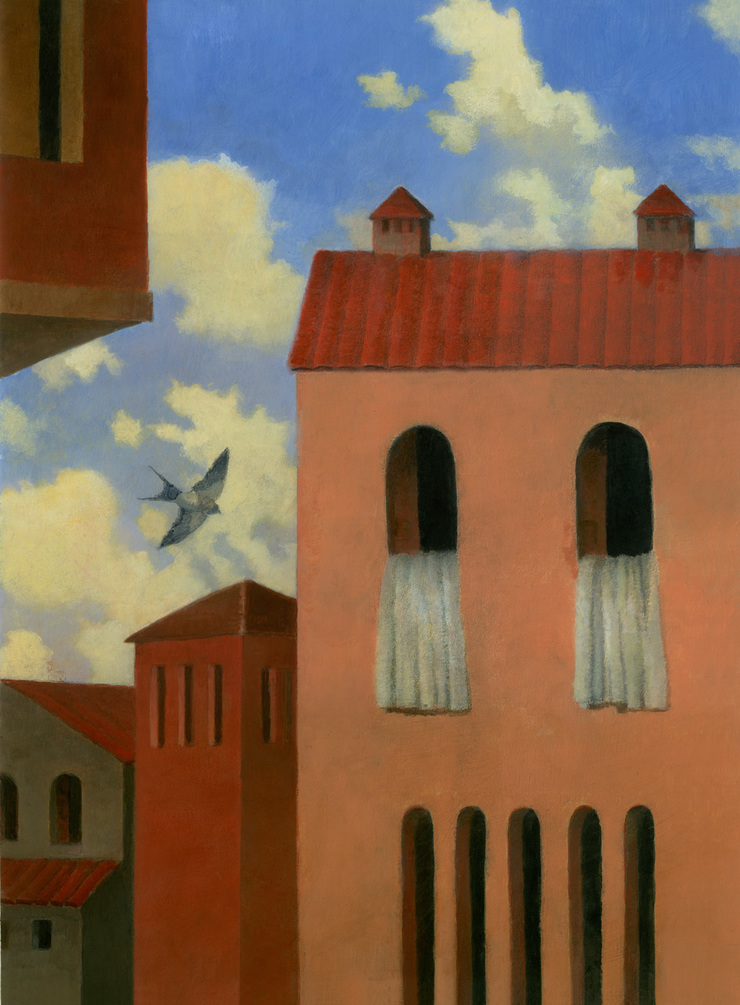
‘I am waited for in Egypt,’ answered the Swallow. ‘To-morrow my friends will fly up to the Second Cataract. The river-horse couches there among the bulrushes, and on a great granite throne sits the God Memnon.
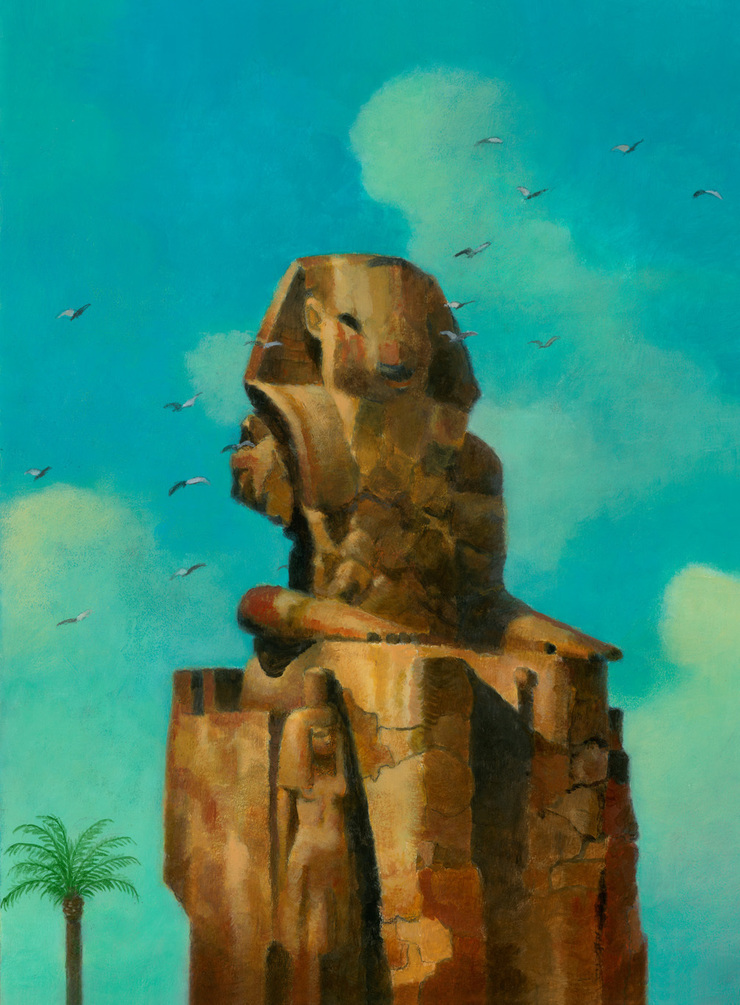
‘Alas! I have no ruby now,’ said the Prince; ‘my eyes are all that I have left. They are made of rare sapphires, which were brought out of India a thousand years ago. Pluck out one of them and take it to him.'
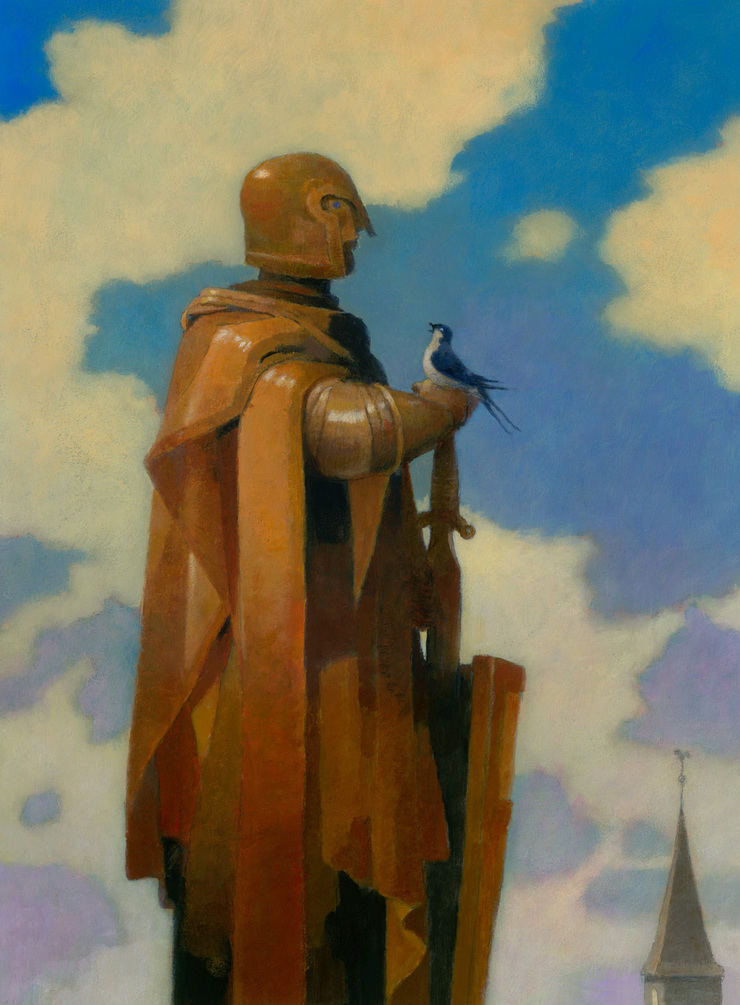
So the Swallow plucked out the Prince’s eye, and flew away to the student’s garret.
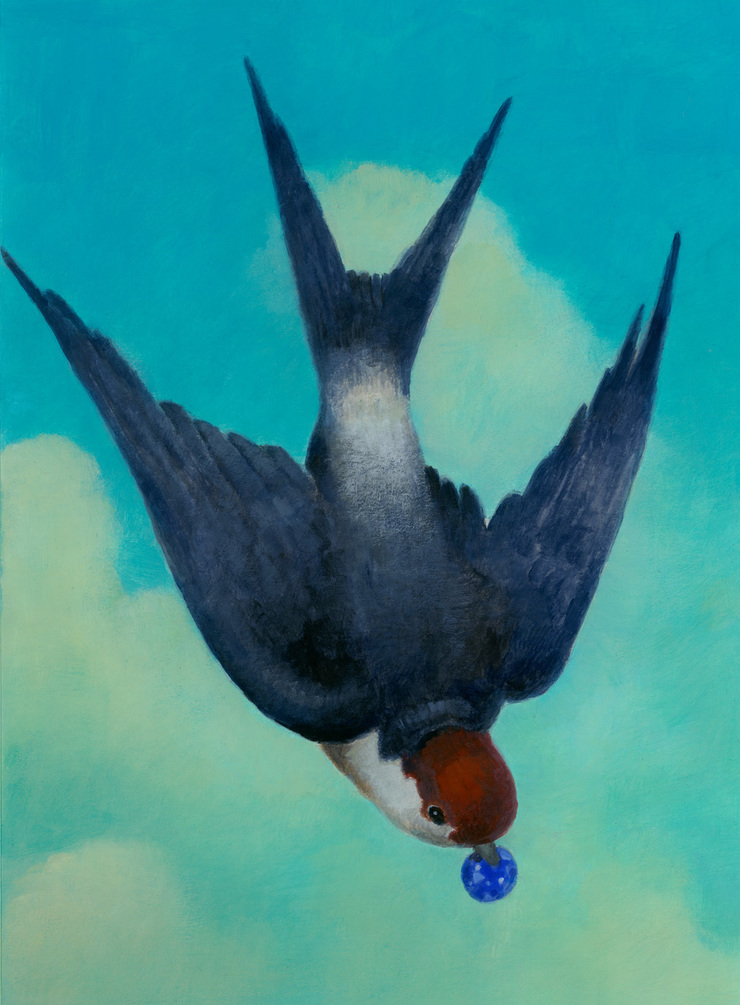
So he plucked out the Prince’s other eye, and darted down with it. He swooped past the match-girl, and slipped the jewel into the palm of her hand.
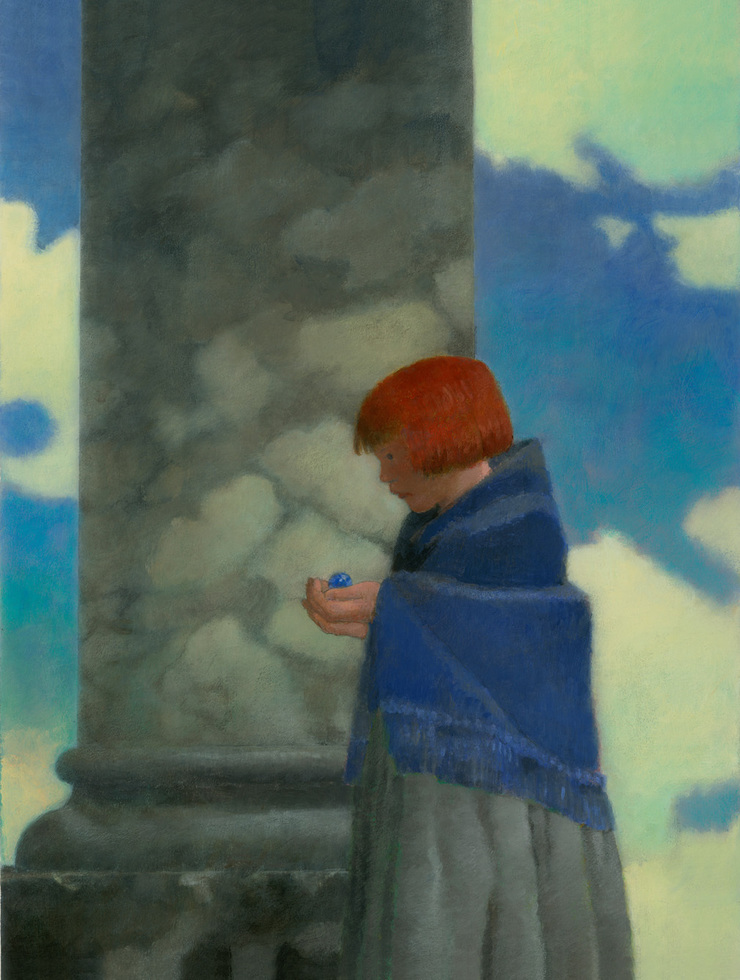
Then the snow came, and after the snow came the frost…‘It is not to Egypt that I am going,’ said the Swallow. ‘I am going to the House of Death.'
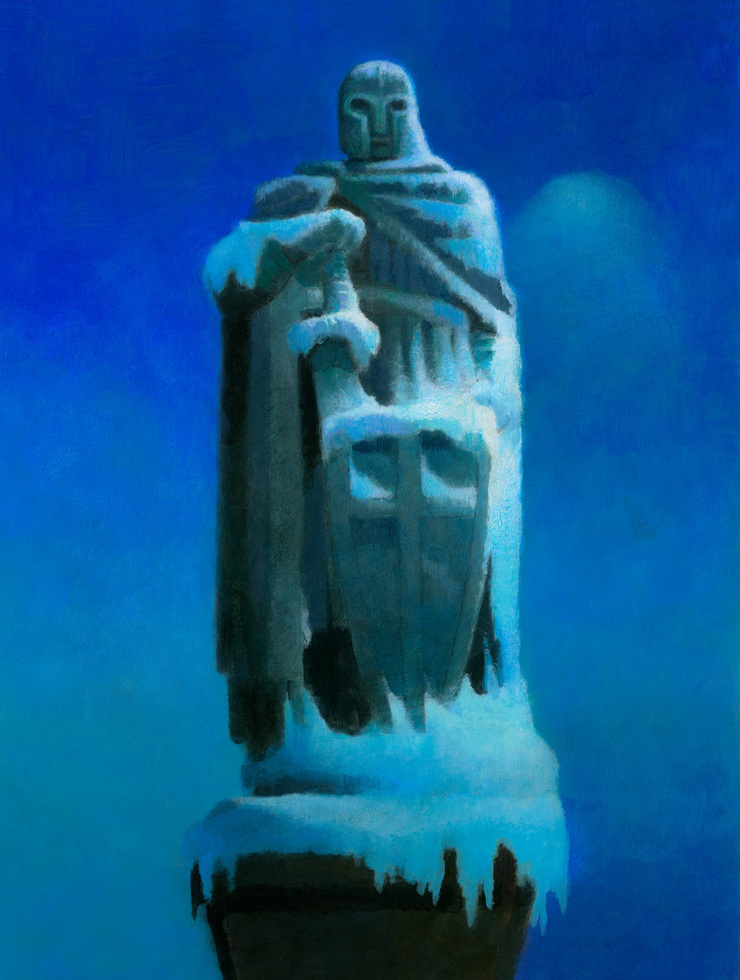
Early the next morning the Mayor was walking in the square below in company with the Town Councillors. As they passed the column he looked up at the statue: ‘Dear me! how shabby the Happy Prince looks!’ he said…‘The ruby has fallen out of his sword, his eyes are gone, and he is golden no longer,’ said the Mayor; ‘in fact, he is little better than a beggar!’
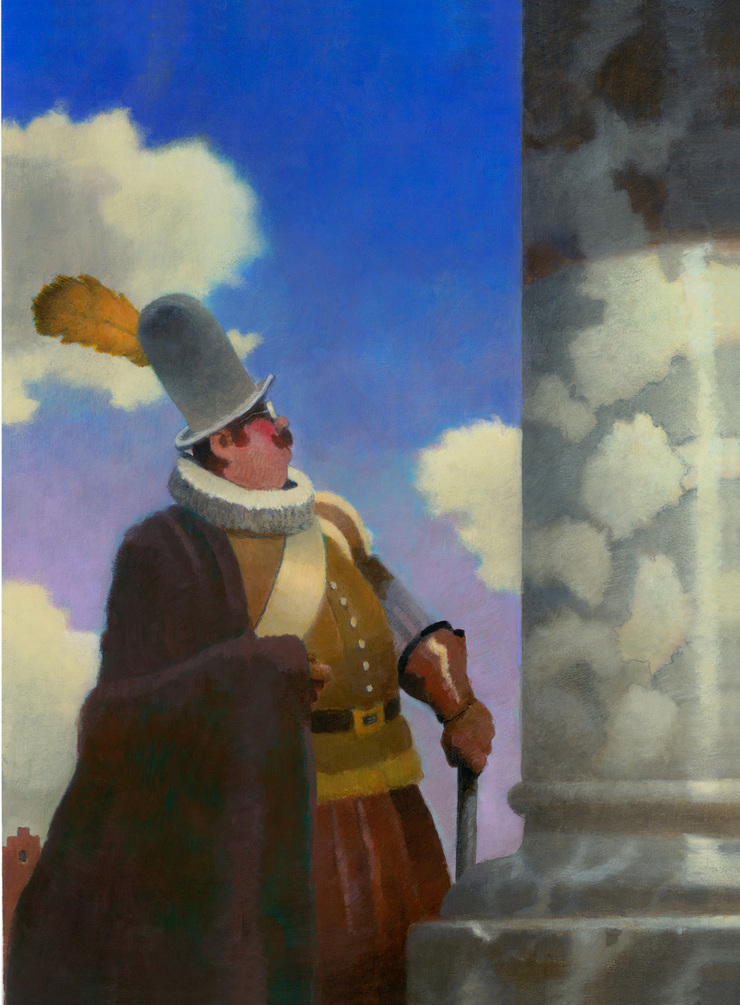
‘What a strange thing!’ said the overseer of the workmen at the foundry. ‘This broken lead heart will not melt in the furnace. We must throw it away.’
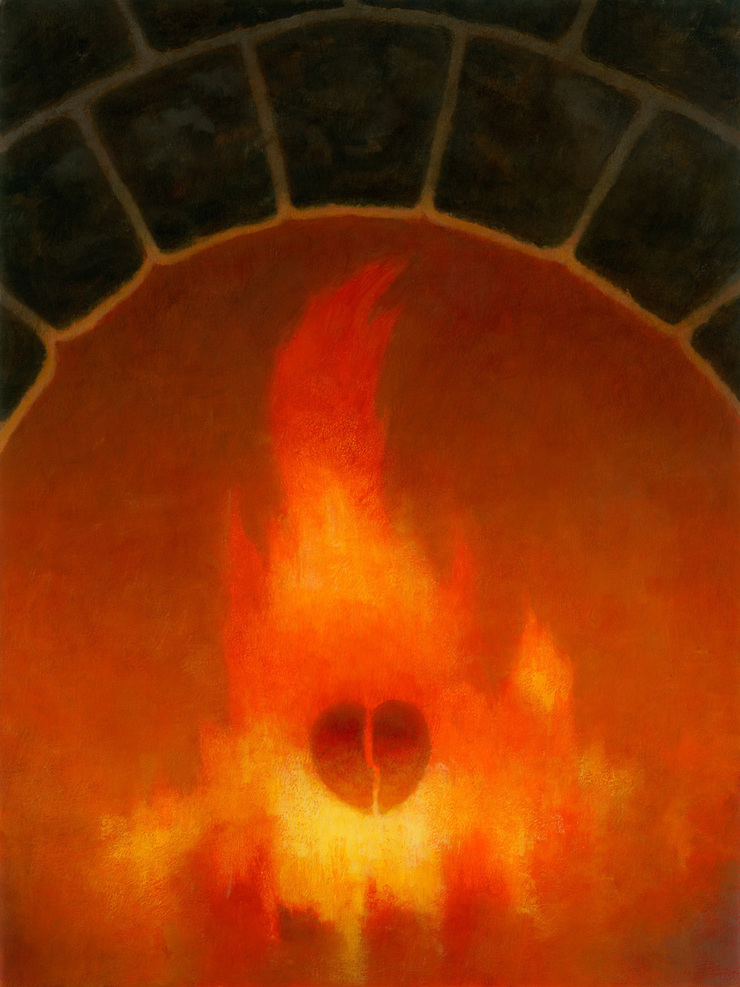
‘Bring me the two most precious things in the city,’ said God to one of His Angels; and the Angel brought Him the leaden heart and the dead bird. ‘You have rightly chosen,’ said God, ‘for in my garden of Paradise this little bird shall sing for evermore, and in my city of gold the Happy Prince shall praise me.’
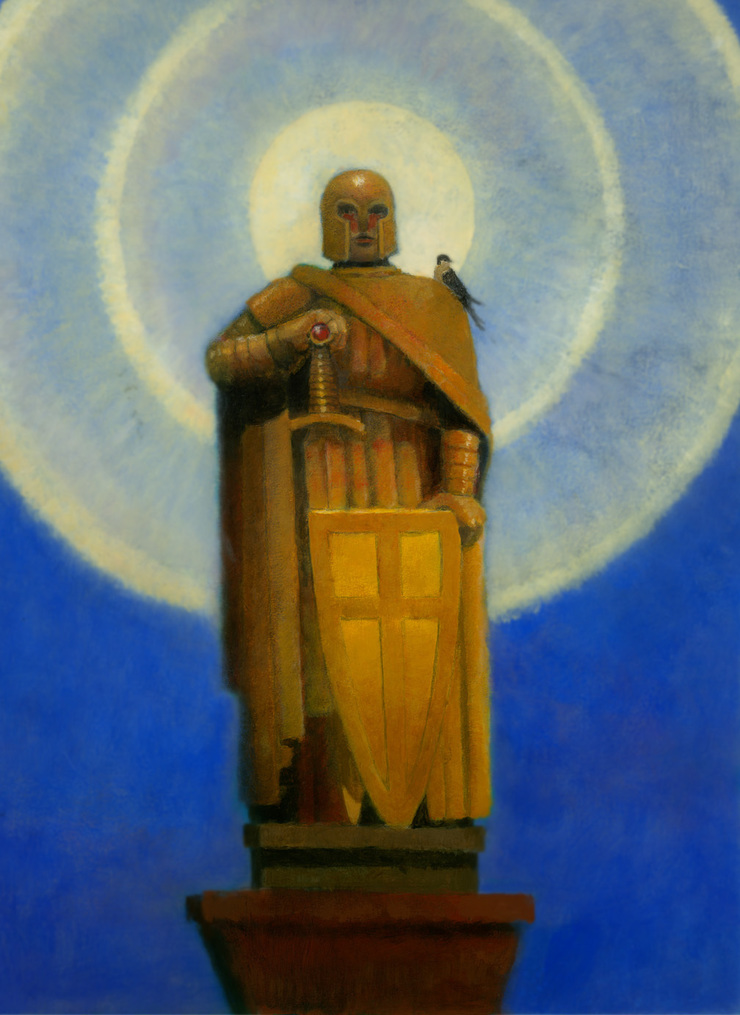
© 2015 Brad Holland
© 2024 Brad Holland
